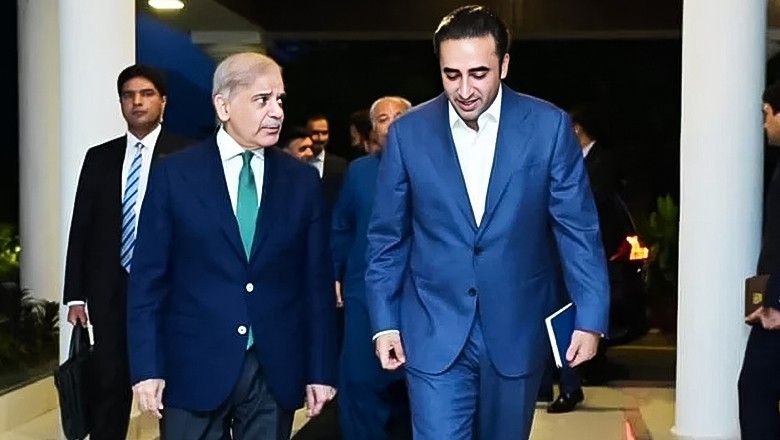PPP, PML-N greenlight 18% defence budget hike as tensions simmer with India

Web Desk
|
6 May 2025
The Pakistan Peoples Party (PPP) and Pakistan Muslim League-Nawaz (PML-N) agreed to an 18% increase in defence spending amid escalating tensions with India, as part of discussions surrounding the upcoming Rs 17.5 trillion federal budget.
According to sources, PPP Chairman Bilawal Bhutto Zardari attended a briefing on the new budget framework, during which the party endorsed an increase in defence allocations to Rs2.5 trillion.
At the same time, PPP leaders voiced concern over the proposed Rs1 trillion allocation for the Public Sector Development Programme (PSDP), calling it inadequate and demanding a higher development outlay.
The next federal budget is expected to be tabled in the National Assembly ahead of Eid.
Read: Balochistan: Law enforcement on high alert as RAW using proxies for terrorist attacks
A seven% hike in pensions and a proposed six% salary increase for government employees are anticipated.
Sources revealed that average inflation is projected at 5% for the next fiscal year, prompting the government to align the salary raise accordingly.
However, some PPP members deemed the Rs14.3 trillion tax revenue target unrealistic, citing ongoing economic challenges such as sluggish industrial growth and contraction in the manufacturing sector.
They recommended targeted support for vulnerable sectors that have potential for growth, while urging protection for agriculture and tax relief for salaried individuals.
Check: UN chief offers mediation between Pakistan, India to defuse tensions
Sources within the Federal Board of Revenue (FBR) disclosed that a proposal is under review to tax pensions exceeding Rs200,000 per month.
If implemented, the measure could impact retired judges, senior military officers, and top-tier bureaucrats.
However, the authorities are also considering relief for low-income pensioners by raising the minimum taxable income threshold to Rs83,000 per month.
Additionally, a plan to cut the existing income tax rates by 2.5% across all slabs is being considered, which would bring down the total tax burden to around 3%.
This proposal, however, requires approval from the International Monetary Fund (IMF), which is expected to review it later this month.
Another suggestion involves introducing a new 20% tax bracket, though it remains uncertain whether the IMF will endorse this move.












Comments
0 comment